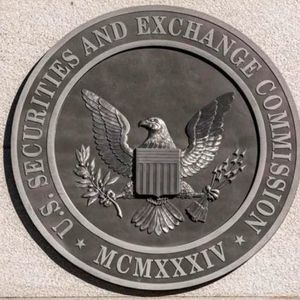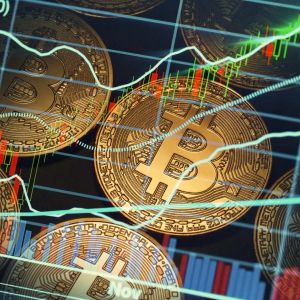Singapore Gulf Bank is making a significant strategic move by seeking a substantial $50 million fund injection aimed at acquiring a stablecoin payments firm. This initiative shows the increasingly important intersection between traditional banking practices and the evolving world of blockchain technology. As financial institutions recognize the potential of digital currencies, such investments are becoming more common. Concurrently, new revelations regarding the politically motivated collapse of Meta’s ambitious Diem project provide valuable insights into the myriad challenges that innovators in the blockchain space are currently facing. Meta’s Diem: A Political Kill of a Revolutionary Payments Network David Marcus, the co-creator of Meta’s now-defunct blockchain payments project Diem, has described the demise of the ambitious initiative as a politically motivated takedown. Speaking in a Nov. 30 post on X, Marcus pointed to political pressure from US regulators as the primary reason for the project’s failure, despite its robust legal and regulatory framework. “There was no legal or regulatory angle left for the government or regulators to kill the project. It was 100% a political kill—one that was executed through intimidation of captive banking institutions,” Marcus stated. His comments shed new light on the challenges faced by one of the most high-profile blockchain projects ever attempted by a tech giant. Launched in June 2019 as Libra, Diem was conceived as a decentralized payments network featuring a stablecoin pegged to the US dollar. With backers like Visa and PayPal, and under the stewardship of Meta (then Facebook), the project promised to revolutionize global payments. Its goal was to address inefficiencies in cross-border transactions and offer a scalable, accessible financial solution. However, the announcement of Libra sparked immediate scrutiny. Just two weeks after the project’s unveiling, Marcus, who had previously served as President of PayPal, was summoned to testify before the Senate Banking Committee and the House Financial Services Committee. Lawmakers raised concerns about potential risks, including money laundering, financial stability, and consumer protection. What followed was a relentless effort to address regulatory issues and garner approval. Despite these efforts, Marcus revealed that the project faced a unique challenge: political resistance that extended beyond the purview of regulatory compliance. A Political Quagmire According to Marcus, Diem’s fate was sealed by political opposition rather than any regulatory deficiency. After making significant adjustments to address concerns, the project had secured tentative support from Federal Reserve Board Chair Jerome Powell, who was willing to allow a limited launch. However, Marcus claimed that Treasury Secretary Janet Yellen advised Powell that permitting the project to proceed would be “political suicide.” The situation escalated when the Federal Reserve reportedly discouraged banks from participating in the initiative, effectively cutting off critical financial infrastructure. Without the support of banking partners, Meta was forced to abandon the project. In early 2022, Meta sold Diem’s intellectual property and assets to Silvergate Capital. Tragically, Silvergate itself went into voluntary liquidation in March 2023 and filed for bankruptcy later that year. Marcus’s revelations came in response to comments made by Marc Andreessen, a prominent venture capitalist, on The Joe Rogan Experience podcast. Andreessen had discussed the broader political pressures faced by the tech and blockchain industries, prompting Marcus to share his firsthand experience. Reflecting on the lessons learned from the Diem project, Marcus said, “If you’re trying to build an open money grid for the world—eventually moving trillions of dollars a day, designed to be here 100 years from now—you have to build it on the most neutral, decentralized, unassailable network and asset.” For Marcus, that network is “hands down” Bitcoin. Since leaving Diem, Marcus has doubled down on his belief in Bitcoin’s potential. He now serves as CEO of Lightspark, a payments company leveraging Bitcoin and its layer-2 Lightning Network to enable faster and cheaper transactions. The demise of Diem highlights the intersection of innovation, regulation, and politics in the tech industry. Advocates argue that the project could have addressed long standing inefficiencies in the global financial system, particularly in cross-border payments. Critics, however, saw it as a potential threat to monetary sovereignty and financial stability. Marcus’s statements shed some light on the challenges that blockchain projects face in navigating complex regulatory environments, particularly in jurisdictions like the United States. His experience serves as both a cautionary tale and a call to action for innovators aiming to build decentralized financial systems. While Diem’s vision remains unrealized, its legacy continues to influence the blockchain space. Marcus’s pivot to Bitcoin reflects a broader trend of developers and entrepreneurs seeking decentralized solutions that are resistant to political interference. As regulatory scrutiny of blockchain technology persists, the story of Diem serves as a reminder of the importance of fostering an environment that balances innovation with oversight. Singapore Gulf Bank Seeks $50 Million Fund Injection for Strategic Expansion into Stablecoin Payments In other stablecoin news, Singapore Gulf Bank, a prominent crypto-friendly digital bank operated by the Whampoa Group, is reportedly exploring a $50 million fund injection as part of its ambitious plans to acquire a stablecoin payments company by early 2025. According to a Nov. 25 Bloomberg report , the bank is willing to sell a 10% equity stake to secure the necessary capital. This strategic move, if realized, would further solidify Singapore Gulf Bank’s position as a leader in the evolving financial ecosystem that bridges traditional banking and blockchain-based payments. According to anonymous sources cited in the report, Singapore Gulf Bank is actively engaging with a Middle Eastern sovereign wealth fund and other investors to facilitate the equity sale. The proceeds are earmarked for multiple initiatives, including product development, expanding its payment network, and acquiring specialized talent. Most notably, the funds will support the acquisition of a stablecoin payments company based in either the Middle East or Europe by the first quarter of 2025. This acquisition would bolster the bank's capability to cater to the burgeoning demand for blockchain-based payment solutions, particularly in regions demonstrating significant cryptocurrency adoption. Singapore Gulf Bank operates under the Whampoa Group, a Singapore-based family office that recently secured an operational license in Bahrain. This expansion aligns with the Gulf Cooperation Council (GCC) region’s growing interest in fostering Web3 innovation and blockchain technology. The Middle East, particularly nations like Bahrain, Dubai, and Abu Dhabi, has emerged as a key hub for cryptocurrency and blockchain development. According to a September report by Chainalysis, the Middle East and North Africa (MENA) region accounted for 7.5% of global cryptocurrency transactions, indicating the region's growing importance in the Web3 ecosystem. Shifting Dynamics: Large Transactions and Institutional Interest The Chainalysis report revealed that 93% of crypto transactions in MENA involved amounts exceeding $10,000, highlighting the dominance of institutional and large-scale investors in the region. Conversely, smaller retail investors contributed just 1.8% of the transaction volume. Centralized exchanges dominate on-chain activity, but there is a rising interest in decentralized platforms, particularly in the United Arab Emirates (UAE) and Saudi Arabia. This trend aligns with recent regulatory advancements in the region. For example, the UAE’s Central Bank has approved a custodial insurance product to protect financial institutions and their clients from losses due to hacks, internal fraud, and damage to storage infrastructure, signaling a commitment to fostering a secure and robust digital asset ecosystem. Stablecoins , digital assets pegged to fiat currencies, have become a linchpin for cross-border transactions and decentralized finance (DeFi). By acquiring a stablecoin payments firm, Singapore Gulf Bank aims to position itself as a key player in this transformative sector, potentially reshaping the way digital and traditional finance intersect. The acquisition would not only enhance the bank’s payment network but also align with its broader strategy of tapping into the global demand for seamless, low-cost payment solutions. Such a move would provide a significant competitive edge in the global banking landscape, where the integration of blockchain technology and traditional banking services is becoming increasingly vital. As Singapore Gulf Bank pursues this bold expansion strategy, it signals the growing convergence of traditional finance and blockchain technology. The planned acquisition of a stablecoin payments company is evidence of the bank’s forward-looking vision as well as its push to drive innovation in the financial sector. Should the $50 million fund injection materialize, it could set a precedent for other financial institutions looking to integrate Web3 solutions. With the Middle East emerging as a hotbed for cryptocurrency innovation and adoption, Singapore Gulf Bank’s strategic initiatives could play a pivotal role in shaping the future of digital banking.














